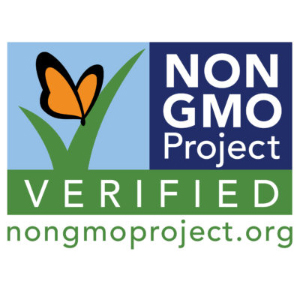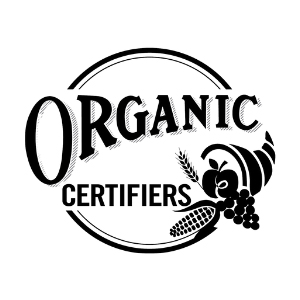ORGANIC OR NOT? CHECK THE LABEL

In today’s health-conscious society, the phrase “Check the label” has become more than just advice; it’s a mantra for those striving to live a cleaner, more sustainable lifestyle. This is especially true in the realm of beauty and personal care, where the distinction between organic and non-organic products can often be blurred by marketing jargon and unclear labeling. The quest for genuine organic products is not just about following a trend; it’s about making informed choices for our health and the environment.
In this article, we dive deep into the world of product labels, shedding light on what it truly means to be organic, how to navigate the complex landscape of certifications and claims, and why it matters. Whether you’re a seasoned organic shopper or new to the concept, understanding the significance behind the labels on your favorite products is essential in making choices that align with your values and lifestyle needs.
Understanding Organic Labels: Deciphering What They Really Mean
In the quest for healthier, more sustainable skincare choices, the term “organic” has become a must for consumers seeking purity and transparency in their beauty products. However, the labels claiming “organic” status can often lead to confusion and skepticism. Understanding what these labels truly mean is crucial for discerning consumers aiming to make informed decisions about the products they choose to incorporate into their skincare routine.
Organic certification for skin care products is not just a fancy sticker on the packaging; it’s a rigorous process that ensures the product meets strict standards for organic farming, processing, and handling. These standards vary by country and certifying body but generally include criteria like the absence of synthetic pesticides, fertilizers, and genetically modified organisms (GMOs). For a product to be deemed organic, a significant percentage of its ingredients must be grown and processed under these organic conditions.
Furthermore, understanding the difference between “100% Organic,” “Organic,” and “Made with Organic Ingredients” labels is key. A “100% Organic” label indicates that all ingredients are organic, while “Organic” signifies that at least 95% of ingredients are organic. Products labeled “Made with Organic Ingredients” contain at least 70% organic ingredients. Recognizing these distinctions helps consumers gauge the level of organic content in their skincare products and align their choices with their values and preferences.
Certifications Explained: Recognizing Reliable Organic Seals and Standards
Navigating the world of organic skincare requires familiarity with organic certifications and seals, each representing a different standard of quality and compliance. These certifications are awarded by authoritative bodies that conduct thorough evaluations of products to ensure they adhere to organic standards. Here are some of the most recognized organic certifications in the skincare industry:
USDA Organic: One of the most familiar organic seals globally, USDA Organic certification requires that products contain at least 95% organic ingredients. The seal is for products with strict adherence to organic farming practices and the avoidance of most synthetic substances.
ECOCERT: A leading organic certification body in Europe, ECOCERT has stringent requirements for both organic and natural cosmetics, ensuring that products are environmentally friendly and sustainably sourced. ECOCERT standards demand that at least 95% of the plant-based ingredients and at least 10% of all ingredients by weight come from organic farming.
COSMOS: The COSMOS standard is a result of a collaboration between five European certification bodies, including ECOCERT and Soil Association. It aims to harmonize organic standards across Europe, providing a comprehensive certification that covers environmental management, the absence of GMOs, petrochemicals, and synthetic colors and fragrances, and sustainable production processes.
Soil Association: As the UK’s leading organic certification body, the Soil Association has specific criteria for beauty products, focusing on the prohibition of synthetic chemicals, GM ingredients, and ensuring that packaging is recyclable and minimal.
Recognizing these seals and understanding the standards behind them empowers consumers to make choices that align with their values regarding health, sustainability, and ethical considerations. When selecting organic skincare products, looking for these certifications can serve as a guide to ensuring the products are genuinely organic and meet high standards of quality and environmental care.
Common Misconceptions About Organic Labeling: What to Watch Out For
When it comes to organic skincare, navigating the sea of labels and claims can be a daunting task, especially when misinformation and misconceptions abound. As consumers become increasingly conscious of their choices, it’s essential to demystify these common misunderstandings about organic labeling to ensure that individuals can make informed decisions that reflect their values and skincare needs. Here are some prevalent misconceptions about organic labeling and what to watch out for:
“Organic” Equals 100% Organic: One of the most widespread misconceptions is that any product labeled as “organic” is entirely free of non-organic ingredients. In reality, the standards for organic labeling vary. While a product labeled “100% Organic” must contain only organic ingredients, those simply labeled as “Organic” may contain up to 5% non-organic ingredients, provided they are on an approved list and not available organically.
All Organic Labels Are Equal: Different organic certifications have varying standards, requirements, and scopes. For instance, USDA Organic, ECOCERT, COSMOS, and Soil Association each have their own set of guidelines and thresholds for what constitutes an organic product. It’s crucial for consumers to understand these differences to align their purchases with the certification that best matches their expectations for organic products.
Organic Means Chemical-Free: While organic skincare products prioritize natural ingredients and avoid many synthetic chemicals, the term “chemical-free” is misleading. Everything is made of chemicals, including water. The key distinction is that organic products limit the use of artificial chemicals and rely on those naturally derived and processed in a way that maintains their organic integrity.
No Certification Needed for Organic Claims: This misconception leads many to assume that any product can claim to be organic without verification. However, reputable organic products undergo rigorous certification processes by recognized bodies to validate their organic status. Products without certification may not adhere to the strict guidelines that define organic skincare, making it vital to look for certified products to ensure authenticity.
Organic Is Always Better for Everyone: While organic skincare products offer numerous benefits, including fewer pesticides and synthetic additives, they are not necessarily the best option for every skin type or condition. Some individuals may react to certain organic ingredients just as they might to synthetic ones. It’s essential to understand your skin’s needs and preferences, recognizing that the “organic” label is not a one-size-fits-all solution.
By debunking these misconceptions, consumers can navigate the organic skincare market more effectively, making choices that are truly in line with their health, ethical, and environmental values. Always read labels carefully, research certifications, and understand that the organic label is a complex and nuanced indicator of a product’s composition and quality.
Share:
More Posts

CHOOSING THE RIGHT SKIN CARE FOR YOU
Understanding your skin type is the cornerstone of any successful skincare regimen. The primary skin types are generally categorized as normal, dry, oily, combination, and sensitive. Each type has distinct characteristics and requires different care to maintain balance and health.

BEST KOREAN ORGANIC MAKEUP BRANDS
In this guide, we delve into the world of Korean organic makeup, exploring brands that stand out for their dedication to purity, performance, and sustainability. Whether you’re a seasoned K-beauty enthusiast or new to the realm of organic cosmetics, our curated selection promises to introduce you to the best in the market, ensuring your beauty routine is as kind to your skin as it is to the planet.





